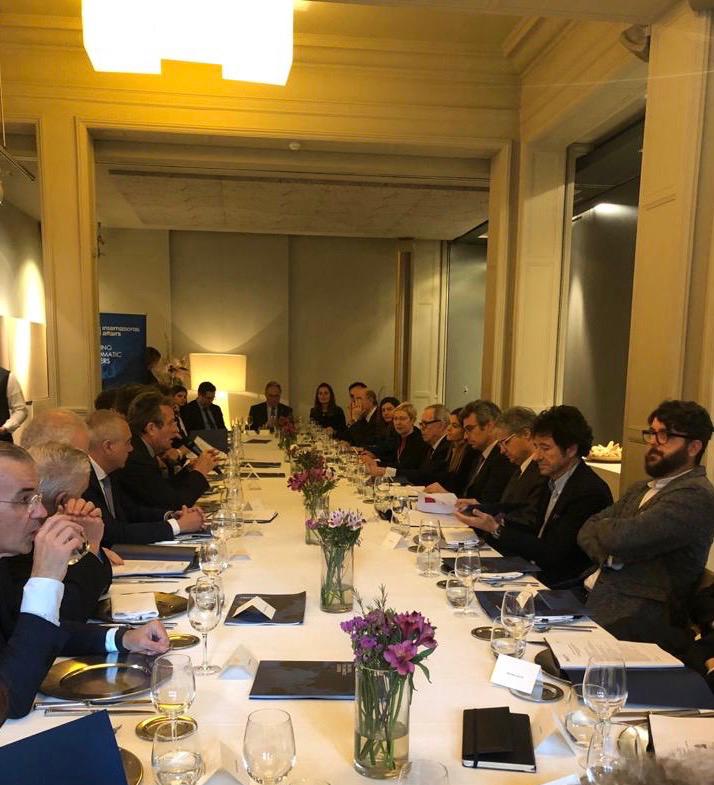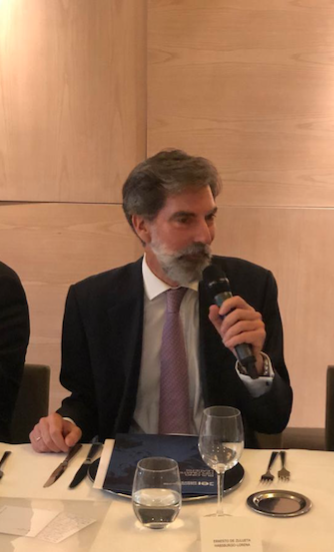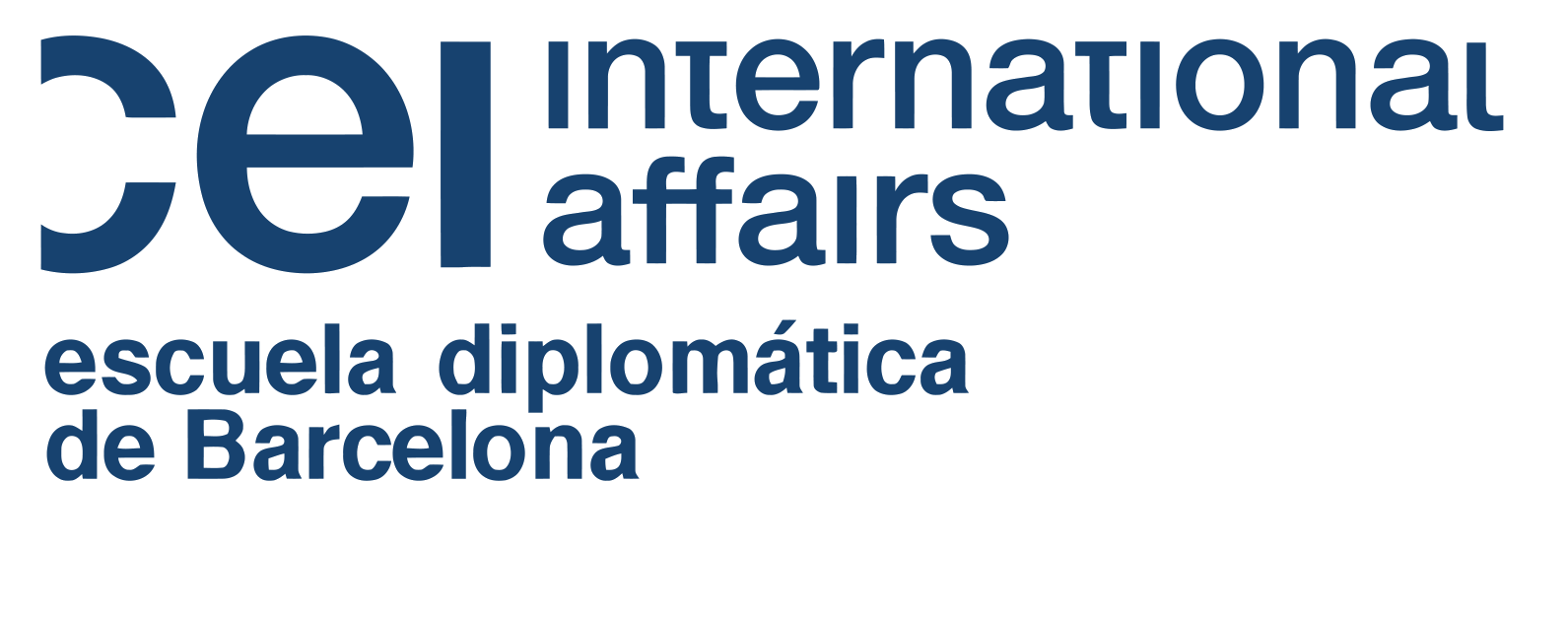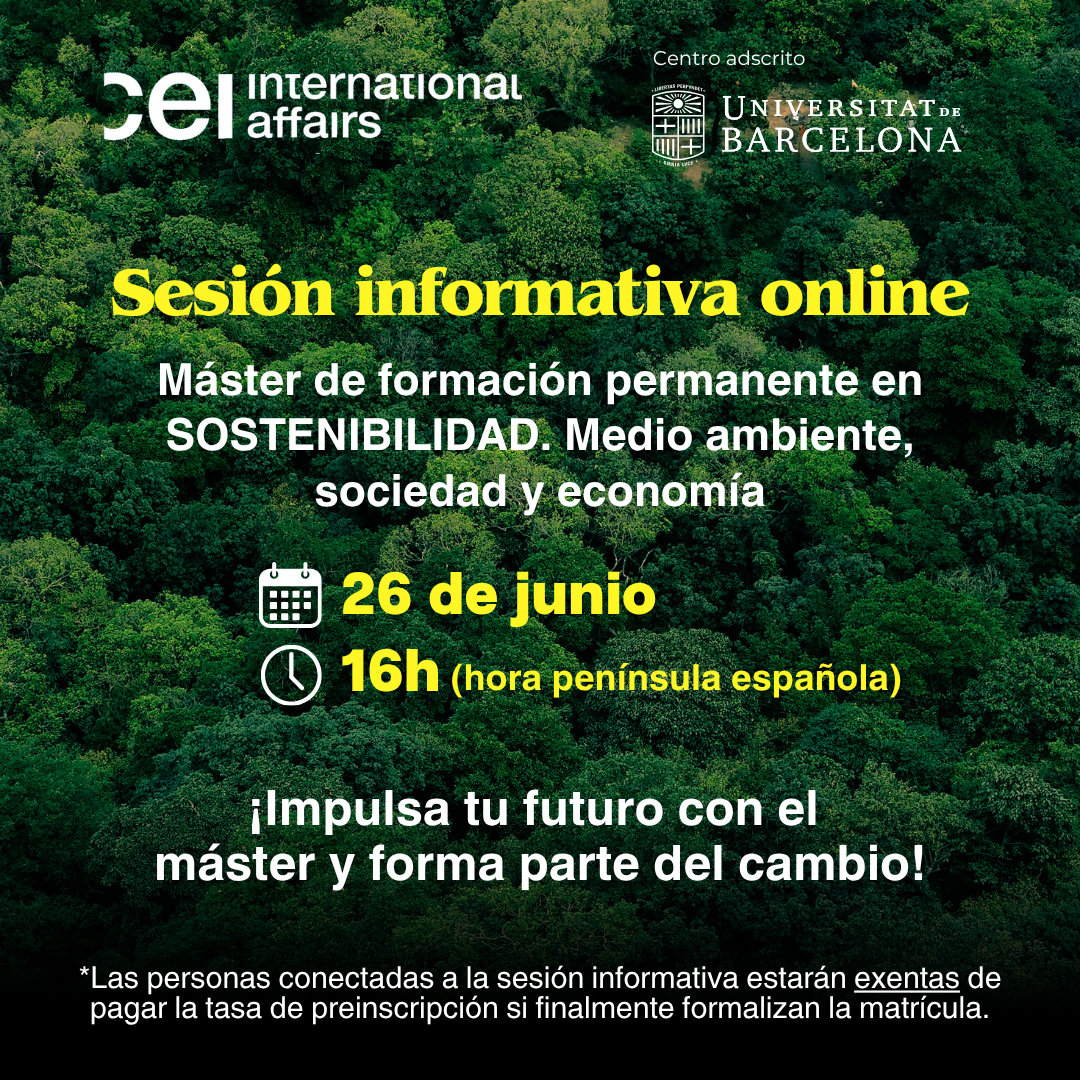Report Meeting with the Ambassador of Spain to Peru: “Peru, its economy and bilateral relations with Spain”
On 25 February, the CEI’s International Classroom took place with the Ambassador of Spain to Peru, H.E. Mr. Ernesto de Zulueta Habsburg-Lorena. The session was organized in collaboration with the Cercle d’Economia.
The ambassador began his presentation by pointing out that Peru is possibly on the doorstep of a cycle change after the social riots that have rocked the Latin American continent during 2019, coupled with the political will to break ties with a corruption that has led the last four former presidents to be convicted, charged or become fugitives from justice. This change will coincide with the celebration in 2021 of both the bicentenary of the country’s independence and the presidential elections.
He then defined the recent political context of the nation. The ambassador took office in 2015 with the 2016 Peruvian pre-election campaign, which was to enable the 4th democratic-era presidential respite after Fujimori. He wished to emphasize that it was the first time that the two final candidates for the presidency coincided with the current economic model and in order to reduce the social inequality that continues to hurt Peruvian society. After an economic dynamism that had led to a triple in GDP per capita since the beginning of 2000 and with the apparent political consensus, the 2016 elections were hopeful but President Kuczynski would eventually resign in March 2018 dotted with the Odebrecht corruption case.
Vice President Martín Vizcarra then took office leading a government mired in a political crisis that has been marked by the constant confrontation with the Legislative, controlled by the Fujimorista Popular Force party, as well as the shock caused for the uncovering of the bribery network in the judicial elites (Lava Jato case) and the new revelations of the Odebrecht case, for the impact by the revocation of Fujimori’s pardon, and for the emergence of populism both messianic (THE FREPAP) and nationalist (Union for Peru).

Vizcarra has even had to overcome a vote of confidence, but its firm commitment to fighting corruption and its proposals for political and judicial reforms have led it to maintain unprecedented levels of popular approval among the last presidents. However, being constrained by the obstructionism of the Congress, he dissolved it in September last year and called early congressional elections last month. The results have given a fractional hemicycle but it has undermined the weight of fujimorism so it is hoped that it will now be able to continue with its draft constitutional reform that posed, inter alia, the monitoring of party financing to increase transparency or the elimination of congressional re-election.
Mr. Zulueta Habsburgo-Lorena noted that closing the important economic gap between Lima and the other regions and reflecting the good health of macroeconomic data into real social improvements are also presented as political challenges.
It then proceeded to present the economic context highlighting the high annual average growth over the past two decades (about 6% until 2013, just over 3% from then until 2018), its low inflation, contractual stability and enviable strategic position, making it the 5th most attractive country for investment in the region and has led it to number 72 according to the index of global competitiveness of the World Economic Forum and to call for admission to the OECD.
According to the ambassador, another dynamic aspect of Peru’s economy is its defense of multilateralism and free trade that is reflected in the trade agreements it has signed with more than two dozen countries, the economic complementation agreement with Mercosur , its membership in the Pacific Alliance and the WTO, its subscription of the Trans-Pacific Agreement (TPP) or the 2013 Multipart Agreement with the EU which liberalises 95% of bilateral trade.
 As weaknesses in its economic structure he mentioned dependence on raw materials, institutional weakness, social inequality, regional disparities, high informality exceeding 70%, and deficit in infrastructure and innovation.
As weaknesses in its economic structure he mentioned dependence on raw materials, institutional weakness, social inequality, regional disparities, high informality exceeding 70%, and deficit in infrastructure and innovation.
In terms of future forecasting, the country is expected to grow at an average rate of 4.4% between 2020 and 2030 backed by economic policies that improve competitiveness and productivity, and reforms that serve to continue attracting private investment, increase enforcement of public investment, ensuring legal certainty, simplifying administrative barriers and increasing tax transparency. The ambassador is optimistic and believes that in this context great opportunities open up for Spanish companies, pending the signing of a double taxation agreement.
Spain has been a permanent investor in the Peruvian territory since the 1990s. And in fact, it leads the ranking in relation to the accumulated balance of foreign direct investment, focusing especially on the telecommunications, financial services and oil and gas extraction sectors. Currently there are more than 400 Spanish companies established in Peru, among which are almost all of the IBEX and progressively with the internationalization of SMEs, these have also been entering the market. In the trade area, the bilateral balance is in deficit for Spain, with the coverage rate normally around 40%. On the other hand, he noted that Spain’s observer status in the Pacific Alliance allows him to act on two axes: boosting the Peruvian internal market and as an internationalization base for the Alliance in the EU and Africa.
Another key aspect that was mentioned is that the sectors with the best prospects to undertake projects are infrastructure, water and sanitation services, agro-exportation, the circular economy, education and health services.
Finally, the rapporteur gave a recommendation to facilitate the performance of SMEs in Peru which he invited to take into account the difference between the two countries with regard to the maturation periods of the projects and to always include in contracts the arbitration clauses conflicts.
Report prepared by Inés Casado Montes
Sudent of the Preparation to Join the Diplomatic Corps.

